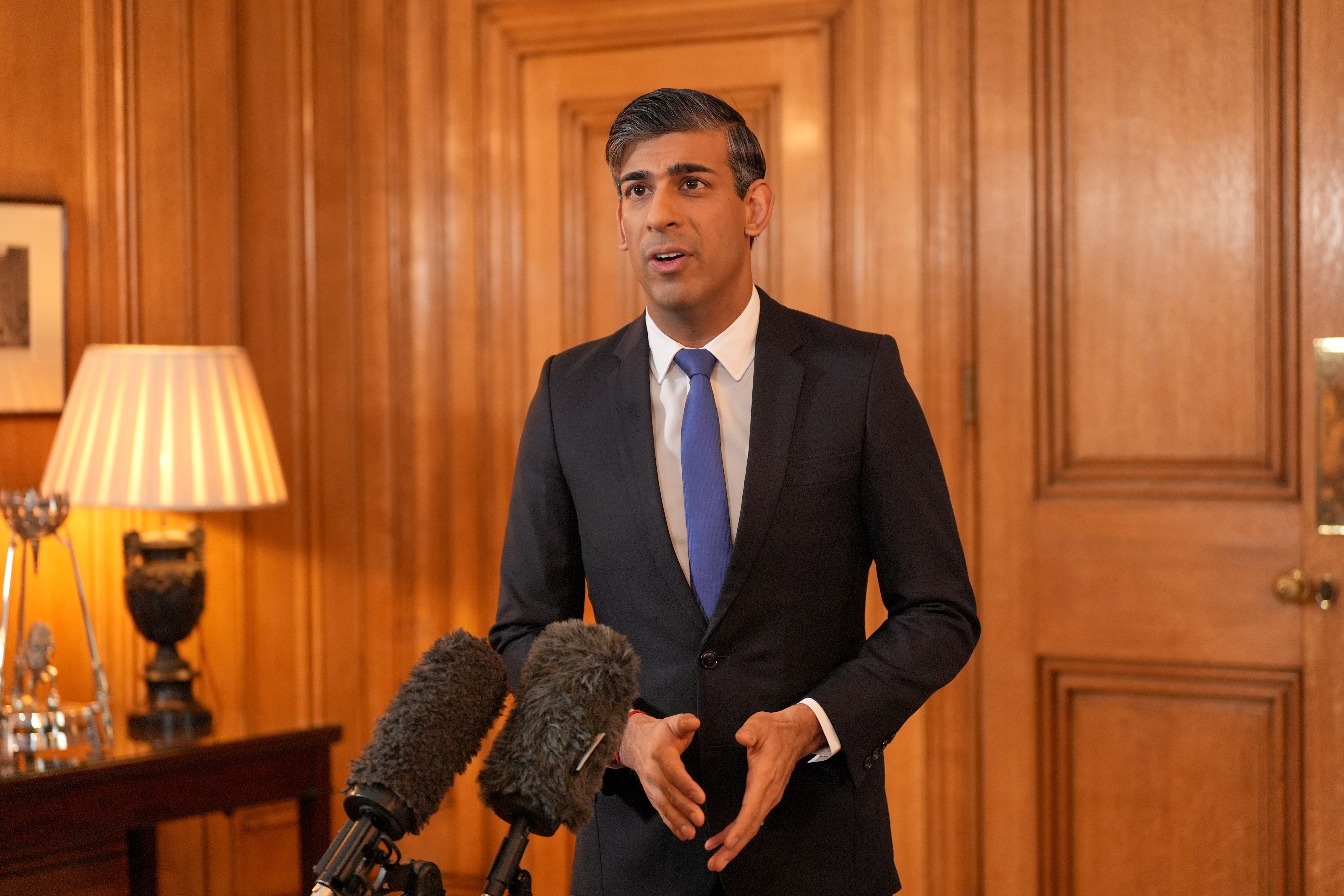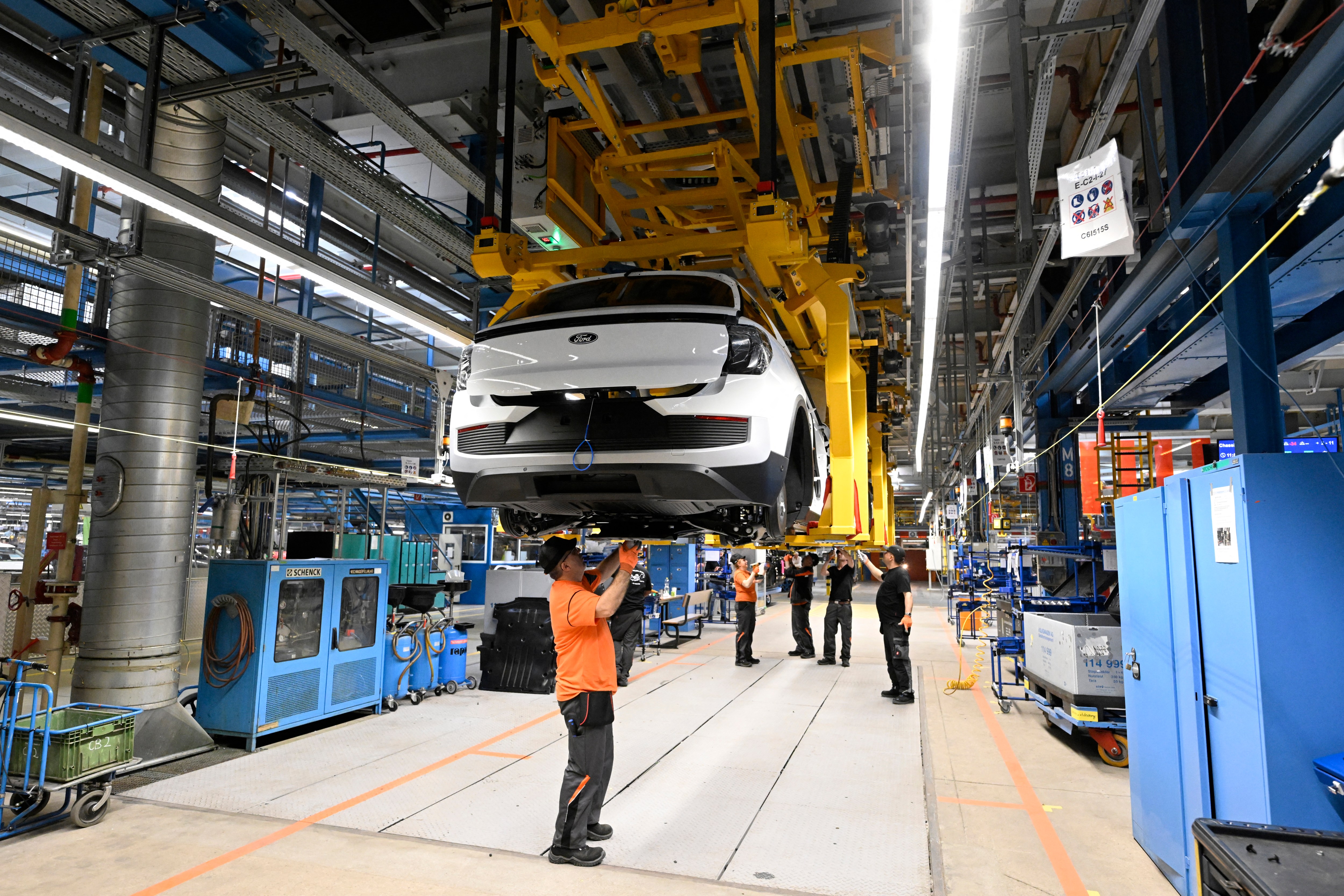Ford Calls on Labour Government to Reconsider Electric Vehicle Goals
Ford is advocating for the newly formed Labour government to reconsider the ambitious targets for electric vehicle sales in the UK and the harsh penalties imposed on manufacturers that fail to meet these goals.
The American automotive giant, historically a leader in the British car market, is experiencing a decline in sales as it transitions to an electric vehicle lineup. Ford is urging ministers to reevaluate the zero-emission vehicle (ZEV) mandate, particularly after Prime Minister Rishi Sunak’s controversial postponement of the ban on new petrol cars.
Following Sunak’s announcement to extend the deadline for banning new petrol and diesel car sales from 2030 to 2035, the registration of electric vehicles has stagnated. Ford is requesting the chancellor to support the sector by reducing VAT on new electric vehicle purchases and public charging costs. Lisa Brankin, chair and managing director of Ford UK, emphasized, “Without customer incentives, the industry will struggle to meet its targets.”

This year, the ZEV mandate requires that 22% of manufacturers’ outputs be electric vehicles, with fines of £15,000 for each non-compliant vehicle produced below this threshold. Current sales trends indicate that only 18% of cars sold this year are electric, with an increased target of 28% for the following year, which many believe will be unattainable.
Brankin noted, “We know that incentives drive the market.” Electric vehicle sales to private retail buyers have dropped below 10%, while fleet sales with better tax benefits account for 36% of sales. “Retail customers make up 40% of the total market, so a shift in their purchasing behavior is vital,” she added.
Importantly, Brankin believes the government should delay penalties associated with the ZEV mandate and the complex vehicle emissions trading scheme for at least a year. She proposed that implementing customer incentives could gradually build market momentum, allowing the industry to better prepare to reset ZEV targets by 2026.

In its recent manifesto, Labour reinstated the ban on the sale of new internal combustion engine vehicles by 2030, marking a significant policy shift. While Brankin acknowledges the challenge of achieving the 2030 target, she cautioned against imposing fines as early as 2025, describing it as potentially detrimental. “We have become casual about electrification; it is a significant change for consumers, and most are resistant to change,” she expressed.
She further elaborated that the industry has catered to the enthusiastic early adopters but now faces the challenge of converting the broader market. “Incentives will provide a compelling reason for consumers to consider electric vehicles, and reaching sales targets will depend on generating market momentum,” she stated.
Ford’s market position has diminished significantly, with the company shedding five decades of market leadership. The UK car manufacturing sector saw its manufacturing capabilities exit years ago, with Ford cutting approximately 10,000 jobs in recent years. The last time Labour was in power, Ford captured 15% of the UK car market, but following the decision to discontinue the popular Fiesta model, its sales are projected to fall below 100,000 units this year, reducing its market share to less than 6%.
Initially slow in committing to electric vehicles, Ford has since accelerated its plans, aiming for 80% of its sales to be electric by 2030 in Europe. This year, it adjusted its plans to include new non-zero-emission plug-in hybrids produced in Valencia, Spain.

Although Ford’s electric vehicle sales accounted for less than 3% of its total sales earlier this year, the introduction of the Mustang Mach-E and the new Ford Explorer is changing that landscape. An upcoming electric version of the Puma is expected to launch soon, priced below £30,000, a competitive price point within the market.
Brankin emphasized the necessity for Chancellor Rachel Reeves to facilitate and incentivize the electric vehicle market, despite the pressure of budget cuts elsewhere. “We need to provide consumers with compelling reasons to switch to electric vehicles. We share the government’s ambitious commitment to reaching net-zero emissions, and now is the time for decisive action,” she concluded.




Post Comment